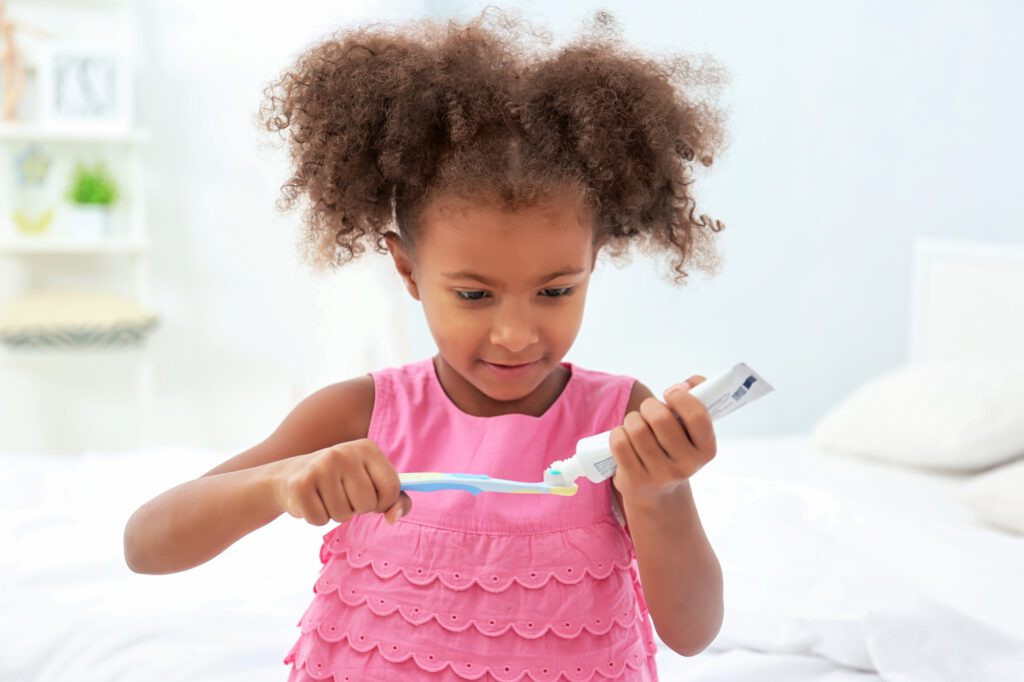Each of us has a variety of different tasks or activities we complete as part of everyday life.
These include things like personal hygiene routines, getting dressed, moving from place to place, and many others. We perform these tasks daily, often without much thought.
These are called activities of daily living, or self-care skills.
Children, too, perform many activities of daily living. As they continue to grow and develop their motor skills, they begin to incorporate more self-care tasks, thereby increasing their overall independence.
In some cases, however, children may struggle to effectively perform certain self-care skills. If so, help is available.
At Aurora Speech Clinic, our occupational therapists have an area of clinical interest in helping children develop their self-care skills.
Being able to perform their activities of daily living can help build self confidence, as well as greater physical, mental, and emotional wellness.
If your child is falling behind, pediatric occupational therapy services can help.
How Can Occupational Therapy Help Develop Self-Care Skills?
Occupational therapists (OTs) play a crucial role in helping children develop the skills necessary to perform activities of daily living (ADLs) independently:
Assessment:
Occupational therapists start by assessing a child’s current level of functioning in ADLs. They consider the child’s age, developmental stage, and any physical, cognitive, or sensory processing differences that may affect their abilities.
Goal setting:
Based on the assessment, occupational therapists work with the child and their family to establish specific, achievable goals related to ADLs. These goals are individualized and designed to promote independence and improve the child’s quality of life.
Skill development:
Occupational therapists use various therapeutic techniques and activities to help children develop the necessary skills for ADLs. This may include motor skills, sensory processing, coordination, balance, and problem-solving skills.
Adaptive strategies:
Occupational therapists teach children and their families adaptive strategies and techniques to make ADLs easier to manage. This could involve using specialized tools or equipment, modifying the environment, or changing the way tasks are approached.
Sensory integration therapy:
For children with sensory processing difficulties, occupational therapists can provide therapy to help them better understand and respond to sensory information, which can improve their ability to perform ADLs.
Fine and gross motor skills:
Occupational therapists work on improving a child’s fine motor skills (e.g., handwriting, dressing, feeding) and gross motor skills (e.g., walking, running, jumping) as these skills are essential for ADLs.
Self-care routines:
Occupational therapists help children develop routines for ADLs, such as getting dressed, brushing teeth, bathing, and toileting. They may break down these tasks into smaller, more manageable steps to facilitate learning.
Independence and self-esteem:
Occupational therapists focus on building a child’s confidence and self-esteem by promoting their independence in ADLs. This can have a positive impact on a child’s overall sense of well-being.
Family education and involvement:
Occupational therapists often work closely with families to educate them about strategies and techniques that can be used at home to support a child’s ADL development. Consistent practice and reinforcement at home are essential.
Collaboration with other professionals:
Occupational Therapists may collaborate with other healthcare professionals, such as physical therapists, speech-language pathologists, and educators, to address all aspects of a child’s development comprehensively.
